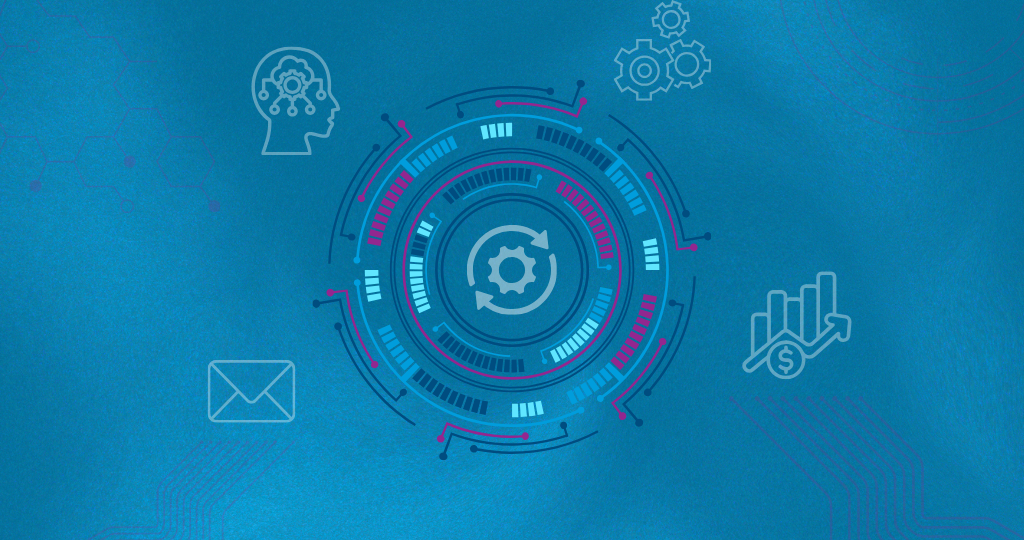Building a Business, Not a Job: How Systemisation Leads to Sustainable Growth
Many entrepreneurs start their businesses with the dream of creating something that will grow and thrive independently. However, without proper systemisation, it's easy to find yourself trapped in the day-to-day grind, turning your business into a demanding job rather than a scalable enterprise. Systemisation is the key to breaking free from this cycle, allowing you to build a business that runs efficiently without your constant involvement. In this blog, we’ll explore how systemisation leads to sustainable growth, and how you can start systemising your business to achieve long-term success.
The Difference Between Building a Business and Building a Job
Building a Job vs. Building a Business
When you’re building a job, you’re essentially creating a role for yourself within the company that requires your constant presence. This often leads to burnout, limited growth potential, and a business that can’t function without you. On the other hand, building a business involves creating systems and processes that allow the company to operate independently of you, making it scalable and sustainable.
Key Differences:
- Dependency: A job-based business relies heavily on the owner, while a systemised business can operate without the owner’s daily involvement.
- Scalability: Job-based businesses struggle to scale because growth increases the workload on the owner. Systemised businesses, however, can scale more easily because processes are designed to handle increased demand.
- Value: A business with strong systems is more valuable to potential buyers because it’s not tied to the owner’s personal involvement.
How Systemisation Leads to Sustainable Growth
1. Streamlining Operations
Systemisation involves creating standardised procedures for every aspect of your business. This streamlines operations, making them more efficient and less reliant on any one individual. When processes are clear and repeatable, your team can operate more effectively, reducing bottlenecks and increasing productivity.
2. Enabling Scalability
A systemised business is designed to grow. By automating routine tasks and creating scalable processes, you can handle increased demand without overwhelming your resources. Systemisation allows you to replicate success across different locations or departments, ensuring consistent quality and performance as you expand.
3. Reducing Dependency on the Owner
When systems are in place, your business no longer depends on you for day-to-day operations. This frees up your time to focus on strategic growth initiatives, such as exploring new markets, developing new products, or building partnerships. It also means your business can continue to operate smoothly in your absence.
4. Enhancing Customer Experience
Systemisation improves the consistency and quality of the customer experience. By standardising how your business interacts with customers—from initial contact to post-sale support—you ensure that every customer receives the same high level of service. This leads to higher customer satisfaction, loyalty, and ultimately, sustainable growth.
5. Improving Employee Satisfaction
When employees know exactly what’s expected of them and have clear guidelines to follow, their job satisfaction increases. Systemisation reduces confusion, empowers employees to perform their tasks efficiently, and allows for easier training and onboarding. Happy employees are more productive and more likely to stay with your company, contributing to long-term success.
Steps to Systemise Your Business
Step 1: Identify Key Processes
Start by identifying the key processes that drive your business. This could include everything from sales and marketing to customer service and operations. Prioritise processes that are critical to your business’s success and have the most significant impact on your bottom line.
Step 2: Document Procedures
For each key process, create a detailed Standard Operating Procedure (SOP). This should outline each step of the process, including who is responsible, what tools are needed, and the desired outcomes. The goal is to create a clear, repeatable guide that anyone in your organisation can follow.
Step 3: Automate Where Possible
Look for opportunities to automate repetitive tasks. This could involve using software like HubSpot to automate email campaigns, lead nurturing, customer follow-ups, or data entry. Automation not only saves time but also reduces the risk of human error and ensures that processes are carried out consistently.
Step 4: Train Your Team
Ensure that your team is fully trained on the new systems and processes. This includes not only initial training but also ongoing education to keep everyone up-to-date with any changes or improvements. The more familiar your team is with the systems, the more effectively they can use them.
Step 5: Monitor and Improve
Systemisation is not a one-time effort. Regularly review your systems to ensure they’re working as intended and make improvements as needed. Gather feedback from your team and customers to identify areas for optimisation. Continuous improvement is key to maintaining efficiency and supporting long-term growth.
How DigiKat Can Help You Systemise for Sustainable Growth
At DigiKat, we specialise in helping businesses transition from owner-dependent operations to fully systemised, scalable enterprises. Our approach combines strategic planning, process optimisation, and the integration of powerful tools like HubSpot to create systems that drive sustainable growth.
Tailored Systemisation Solutions: We work closely with you to understand your business’s unique needs and challenges. Based on this understanding, we help you develop and implement customised systems that streamline operations and enhance efficiency.
HubSpot Integration: HubSpot offers a suite of tools that are ideal for systemising your business processes. From CRM and marketing automation to sales management and customer service, HubSpot provides the infrastructure needed to support scalable growth. DigiKat can help you integrate HubSpot into your operations, ensuring that your systems are efficient, effective, and aligned with your business goals.
Ongoing Support and Optimisation: Systemisation is an ongoing process, and we’re here to support you every step of the way. DigiKat offers continuous support to ensure that your systems remain up-to-date and optimised for success. We provide regular reviews, training, and updates to help you maintain a systemised, scalable business.
Building a business that can grow sustainably requires more than just hard work—it requires systemisation. By creating standardised, repeatable processes, you can transform your business from a demanding job into a scalable enterprise that runs efficiently without your constant involvement. At DigiKat, we’re dedicated to helping you systemise your operations, so you can focus on what matters most—growing your business.
Ready to systemise your business for sustainable growth? Contact DigiKat today to learn how we can help you build a business, not a job, with strategic systemisation.
From the blog


